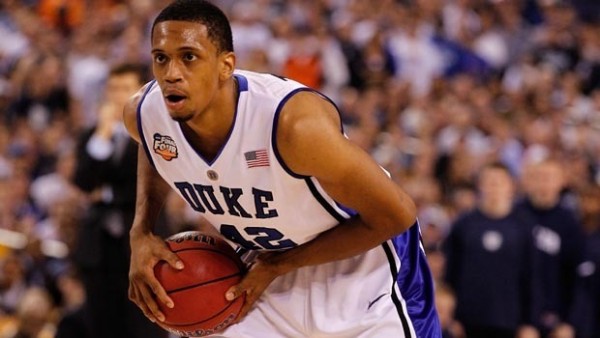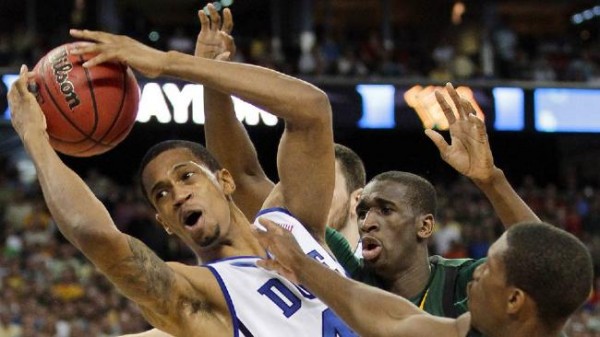Lance Thomas Reaches a Settlement Deal: Is the NCAA Rendered Powerless In Its Investigation?
Posted by Chris Johnson on September 19th, 2012Chris Johnson is an RTC columnist. He can be reached @ChrisDJohnsonn.
The chances that former Duke forward Lance Thomas did not commit some kind of NCAA violation when he purchased $98,700 worth of jewelry on a December road trip to New York City during his senior season are, shall we say, doubtful. Thomas, a starting role player on the Blue Devils’ eventual National Championship-winning team in 2009-10, walked into world-renowned jeweler Rafaello & Co., dropped a $30,000 down payment on a host of diamonds and other trinkets, then promised to pay the remaining $67,800 within the next 15 days. His spending spree – the specifics of which were released last week when word leaked of the firm’s lawsuit against Thomas – raised many eyebrows. It is not every day that student-athletes – from the most well-off to those struggling to stay afloat on hefty financial aid packages/scholarships – walk into celebrity-hotspot jewelers and splash nearly $100,000 on buckets of iced-out swag; not without drawing the analytical glare of NCAA staffers, not without an explanation as to how or where the money came from, nor whether any third parties were involved in the transaction. Given the bare facts, it was hard not to come away thinking Rafaello & Co would entrust someone like Thomas with such for any other reason than an assumed stipulation of future NBA riches and the subsequent jewelry spending they prefigure. Thomas never made good on his promise, and so Rafaello & Co., after waiting more than two years for him to repay the loan, demanded he break even on his credit. On Tuesday, the Raleigh News and Observer reported that the two parties had reached a settlement on the matter.

If neither Thomas nor Rafaello & Co. come clean with specifics, the NCAA may be impotent in pursuing the case (Photo credit: Jonathan Daniel/Getty Images).
Now that Thomas’ outstanding debt has been settled, there are legitimate concerns that NCAA investigators will have no grounds on which to pursue information regarding the former Duke player’s involvement in this transaction. The NCAA cannot compel members outside its jurisdiction to cooperate, meaning neither Thomas nor Rafaello & Co. can be forced to speak with the organization about his purchase. There’s one caveat. A conversation between ESPN.com’s Andy Katz and Indianapolis attorney Stu Brown, a legal specialist focusing on NCAA cases, shed some light on the NCAA’s procedural wherewithal. The terms of the settlement – which may or may not ever become public – may permit Thomas or Rafaello & Co. to speak with NCAA investigators, but if the legal ramifications mandate either or both to keep quiet on the specifics of their transaction, the NCAA will likely have no substantial recourse to find clarity in what on its face appears to be a blatant violation of amateurism. From Katz’s story:










































